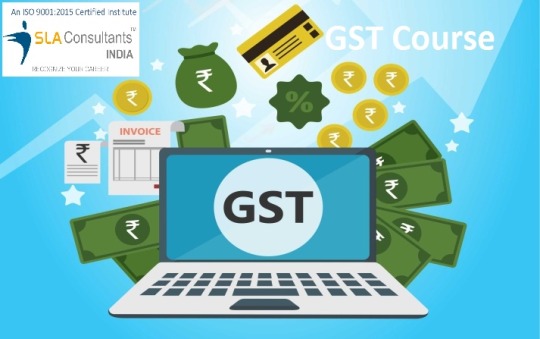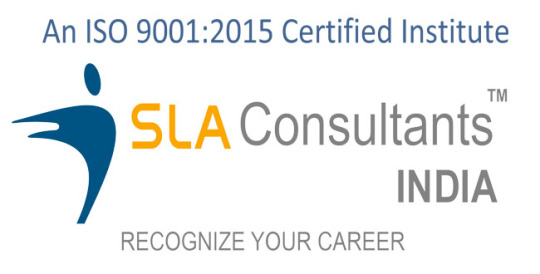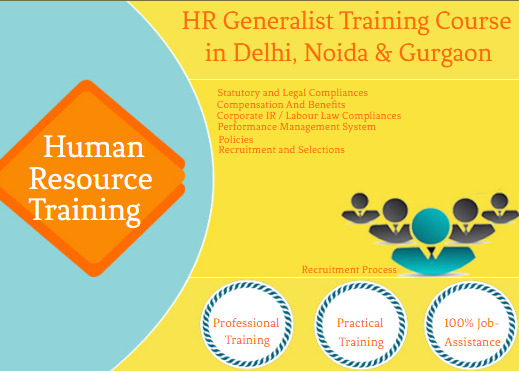#sap institute in delhi
Explore tagged Tumblr posts
Text
SAP SCM Training
The extensive advantages of a widely used SAP ERP module have led to a substantial increase in demand for professionals in this field. As a result, numerous training institutes now offer SAP SCM Training programs, enabling individuals to pursue lucrative career opportunities and achieve significant advancements in their professional lives.

1 note
·
View note
Text
Supercharge Your Career with SAP Training in Delhi: Enroll Now and Level Up!
Improve Your Professional Development with SAP Training in Delhi at Ducat India! Enrol right away to advance your knowledge of SAP, one of the most popular and frequently used ERP systems worldwide. You can gain a thorough understanding of a variety of SAP modules, including SAP ABAP, SAP MM, SAP SD, SAP FI/CO, and more, with our in-depth SAP training classes in Delhi. Ducat India offers excellent SAP training that will give you the skills to succeed in your career, along with knowledgeable instructors, hands-on practical sessions, and cutting-edge infrastructure. Take advantage of this chance to improve your job possibilities by taking SAP training in Delhi. Enrol right away to realise your potential!
Call now: 70-70-90-50-90
visit: https://www.ducatindia.com/erp-sap-training-course-in-delhi

#SAP training in delhi#SAP training institute in delhi#SAP training course in delhi#SAP course in delhi#best SAP institute in delhi
0 notes
Text
In the age of Hindu identity politics (Hindutva) inaugurated in the 1990s by the ascendancy of the Indian People's Party (Bharatiya Janata Party) and its ideological auxiliary, the World Hindu Council (Vishwa Hindu Parishad), Indian cultural and religious nationalism has been promulgating ever more distorted images of India's past.
Few things are as central to this revisionism as Sanskrit, the dominant culture language of precolonial southern Asia outside the Persianate order. Hindutva propagandists have sought to show, for example, that Sanskrit was indigenous to India, and they purport to decipher Indus Valley seals to prove its presence two millennia before it actually came into existence. In a farcical repetition of Romanic myths of primevality, Sanskrit is considered—according to the characteristic hyperbole of the VHP—the source and sole preserver of world culture.
This anxiety has a longer and rather melancholy history in independent India, far antedating the rise of the BJP. [...] Some might argue that as a learned language of intellectual discourse and belles lettres, Sanskrit had never been exactly alive in the first place [...] the assumption that Sanskrit was never alive has discouraged the attempt to grasp its later history; after all, what is born dead has no later history. As a result, there exist no good accounts or theorizations of the end of the cultural order that for two millennia exerted a transregional influence across Asia-South, Southeast, Inner, and even East Asia that was unparalleled until the rise of Americanism and global English. We have no clear understanding of whether, and if so, when, Sanskrit culture ceased to make history; whether, and if so, why, it proved incapable of preserving into the present the creative vitality it displayed in earlier epochs, and what this loss of effectivity might reveal about those factors within the wider world of society and polity that had kept it vital.
[...] What follows here is a first attempt to understand something of the death of Sanskrit literary culture as a historical process. Four cases are especially instructive: The disappearance of Sanskrit literature in Kashmir, a premier center of literary creativity, after the thirteenth century; its diminished power in sixteenth century Vijayanagara, the last great imperial formation of southern India; its short-lived moment of modernity at the Mughal court in mid-seventeenth century Delhi; and its ghostly existence in Bengal on the eve of colonialism. Each case raises a different question: first, about the kind of political institutions and civic ethos required to sustain Sanskrit literary culture; second, whether and to what degree competition with vernacular cultures eventually affected it; third, what factors besides newness of style or even subjectivity would have been necessary for consolidating a Sanskrit modernity, and last, whether the social and spiritual nutrients that once gave life to this literary culture could have mutated into the toxins that killed it. [...]
One causal account, however, for all the currency it enjoys in the contemporary climate, can be dismissed at once: that which traces the decline of Sanskrit culture to the coming of Muslim power. The evidence adduced here shows this to be historically untenable. It was not "alien rule un sympathetic to kavya" and a "desperate struggle with barbarous invaders" that sapped the strength of Sanskrit literature. In fact, it was often the barbarous invader who sought to revive Sanskrit. [...]
One of these was the internal debilitation of the political institutions that had previously underwritten Sanskrit, pre-eminently the court. Another was heightened competition among a new range of languages seeking literary-cultural dignity. These factors did not work everywhere with the same force. A precipitous decline in Sanskrit creativity occurred in Kashmir, where vernacular literary production in Kashmiri-the popularity of mystical poets like Lalladevi (fl. 1400) notwithstanding-never produced the intense competition with the literary vernacular that Sanskrit encountered elsewhere (in Kannada country, for instance, and later, in the Hindi heartland). Instead, what had eroded dramatically was what I called the civic ethos embodied in the court. This ethos, while periodically assaulted in earlier periods (with concomitant interruptions in literary production), had more or less fully succumbed by the thirteenth century, long before the consolidation of Turkish power in the Valley. In Vijayanagara, by contrast, while the courtly structure of Sanskrit literary culture remained fully intact, its content became increasingly subservient to imperial projects, and so predictable and hollow. Those at court who had anything literarily important to say said it in Telugu or (outside the court) in Kannada or Tamil; those who did not, continued to write in Sanskrit, and remain unread. In the north, too, where political change had been most pronounced, competence in Sanskrit remained undiminished during the late-medieval/early modern period. There, scholarly families reproduced themselves without discontinuity-until, that is, writers made the decision to abandon Sanskrit in favor of the increasingly attractive vernacular. Among the latter were writers such as Kesavdas, who, unlike his father and brother, self-consciously chose to become a vernacular poet. And it is Kesavdas, Biharilal, and others like them whom we recall from this place and time, and not a single Sanskrit writer. [...]
The project and significance of the self-described "new intellectuals" in the sixteenth and seventeenth centuries [...] what these scholars produced was a newness of style without a newness of substance. The former is not meaningless and needs careful assessment and appreciation. But, remarkably, the new and widespread sense of discontinuity never stimulated its own self-analysis. No idiom was developed in which to articulate a new relationship to the past, let alone a critique; no new forms of knowledge-no new theory of religious identity, for example, let alone of the political-were produced in which the changed conditions of political and religious life could be conceptualized. And with very few exceptions (which suggest what was in fact possible), there was no sustained creation of new literature-no Sanskrit novels, personal poetry, essays-giving voice to the new subjectivity. Instead, what the data from early nineteenth-century Bengal-which are paralleled every where-demonstrate is that the mental and social spheres of Sanskrit literary production grew ever more constricted, and the personal and this-worldly, and eventually even the presentist-political, evaporated, until only the dry sediment of religious hymnology remained. [...]
In terms of both the subjects considered acceptable and the audience it was prepared to address, Sanskrit had chosen to make itself irrelevant to the new world. This was true even in the extra-literary domain. The struggles against Christian missionizing, for example, that preoccupied pamphleteers in early nineteenth-century Calcutta, took place almost exclusively in Bengali. Sanskrit intellectuals seemed able to respond, or were interested in responding, only to a challenge made on their own terrain-that is, in Sanskrit. The case of the professor of Sanskrit at the recently-founded Calcutta Sanskrit College (1825), Ishwarachandra Vidyasagar, is emblematic: When he had something satirical, con temporary, critical to say, as in his anti-colonial pamphlets, he said it, not in Sanskrit, but in Bengali. [...]
No doubt, additional factors conditioned this profound transformation, something more difficult to characterize having to do with the peculiar status of Sanskrit intellectuals in a world growing increasingly unfamiliar to them. As I have argued elsewhere, they may have been led to reaffirm the old cosmopolitanism, by way of ever more sophisticated refinements in ever smaller domains of knowledge, in a much-changed cultural order where no other option made sense: neither that of the vernacular intellectual, which was a possible choice (as Kabir and others had earlier shown), nor that of the national intellectual, which as of yet was not. At all events, the fact remains that well before the consolidation of colonialism, before even the establishment of the Islamicate political order, the mastery of tradition had become an end in itself for Sanskrit literary culture, and reproduction, rather than revitalization, the overriding concern. As the realm of the literary narrowed to the smallest compass of life-concerns, so Sanskrit literature seemed to seek the smallest possible audience. However complex the social processes at work may have been, the field of Sanskrit literary production increasingly seemed to belong to those who had an "interest in disinterestedness," as Bourdieu might put it; the moves they made seem the familiar moves in the game of elite distinction that inverts the normal principles of cultural economies and social orders: the game where to lose is to win. In the field of power of the time, the production of Sanskrit literature had become a paradoxical form of life where prestige and exclusivity were both vital and terminal.
The Death of Sanskrit, Sheldon Pollock, Comparative Studies in Society and History, Vol. 43, No. 2 (Apr., 2001), pp. 392-426 (35 pages)
126 notes
·
View notes
Text
Learn Financial Accounting – Get Certified with a Diploma
डिप्लोमा इन फाइनेंशियल अकाउंटिंग (Diploma in Financial Accounting)
Table of Contents
Introduction परिचय
What is Diploma in Financial Accounting?
Eligibility Criteria (योग्यता की शर्तें)
Syllabus & Subjects (पाठ्यक्रम और विषय)
Career Scope (कैरियर की संभावना)
Salary & Job Opportunities (वेतन और नौकरिय की संभावना)
Benefits of Financial Accounting Course
Best Institutes for Diploma in Financial Accounting
FAQs (भाव पूछे जाने वाले प्रश्न)
Conclusion (निष्कर्षण)
1. Introduction परिचय
Financial Accounting (वित्तीय लेखा लेखान) is the backbone of business operations. Every company requires skilled professionals to manage financial records. A Diploma in Financial Accounting is a great option for students who want a stable and high-paying career in accounting.
2. What is Diploma in Financial Accounting?
A Diploma in Financial Accounting is a short-term course focusing on financial management, taxation, auditing, and accounting software. This diploma prepares students for roles such as Accountant, Financial Analyst, and Tax Consultant.
Key Features:
Duration: 6 months to 1 year
Mode: Online & Offline
Essential for: Aspiring accountants & finance professionals
Covers: Taxation, Auditing, GST, Tally, Financial Management
3. Eligibility Criteria (योग्यता की शर्तें)
Minimum Qualification: 12th pass (Any Stream)
Basic knowledge of Mathematics and Commerce is a plus
No age restriction
Some institutes may require an entrance exam
4. Syllabus & Subjects (पाठ्यक्रम और विषय)
Core Subjects:
Accounting Principles
Tally ERP & Accounting Software
Taxation (GST, Income Tax, TDS)
Banking & Finance
Financial Statement Analysis
Auditing & Compliance
5. Career Scope (कैरियर की संभावना)
A Diploma in Financial Accounting opens multiple job opportunities in various industries.
Job Roles:
Accountant
Financial Analyst
Tax Consultant
Auditor
Investment Banker
6. Salary & Job Opportunities (वेतन और नौकरिय की संभावना)
Entry-level salary: ₹20,000 - ₹30,000 per month
Mid-level salary: ₹40,000 - ₹60,000 per month
Senior positions: ₹1 lakh+ per month
7. Benefits of Financial Accounting Course
High Demand in Banking, Corporate, and Taxation sectors
Opportunity for self-employment as Tax Consultant
Helps in understanding business finance
Global career opportunities
8. Best Institutes for Diploma in Financial Accounting
NIIT
Institute of Chartered Accountants of India (ICAI)
Udemy & Coursera (Online options)
Local universities & coaching centers
9. FAQs (भाव पूछे जाने वाले प्रश्न)
Q1: Is a diploma in financial accounting useful? Yes, it provides practical knowledge and job opportunities in finance and taxation.
Q2: Can I get a government job after this diploma? Yes, various government departments require financial accountants.
Q3: What is the average course fee? Fees vary from ₹5,000 to ₹50,000, depending on the institute.
10. Conclusion (निष्कर्षण)
A Diploma in Financial Accounting is an excellent choice for those interested in finance, taxation, and banking. It is a career-oriented course with high earning potential. If you have an interest in numbers and financial management, this diploma is a perfect option for you.
IPA OFFERS:-
E Accounting Course ,
Income Tax Course,
Diploma courses after 12th Commerce ,
Courses after b com ,
Diploma in financial accounting ,
SAP fico Course ,
Accounting and Taxation Course ,
GST online Course ,
Computer Course in Delhi ,
Payroll Management Course,
Tally Course ,
One year course ,
Advanced Excel Course ,
Computer ADCA Course in Delhi
Data Entry Operator Coursefee,
diploma in banking finance ,
stock market trading Course in Delhi,
six months diploma course in accounting
Income Tax
Accounting
Tally
Career

0 notes
Text
GST Course in Delhi, "Learn Direct Tax Code 2025" 110075, NCR by SLA. GST and Accounting Institute, Taxation and ERP Tally Prime Institute in Delhi, Noida, "Free SAP FICO till 31 March 2025" [ Learn New Skills of Accounting & SAP Finance for 100% Job] in SBI Bank
Mastering GST Certification Course by SLA Consultants India
Learn Comprehensive Guide to GST Returns by CA Trainer of SLA Institute
The Goods and Services Tax (GST) is a crucial aspect of India’s indirect tax system, requiring businesses to comply with various return filings. Understanding these returns is essential for accurate tax reporting and avoiding penalties. In this SLA Institute blog, we will cover the key GST returns, their importance, and the consequences of late filing. GST Course in Delhi
Understanding GST Returns
GST returns are periodic statements that registered taxpayers must file to declare their tax liabilities and claim input tax credits. Here’s a detailed look at the various GST returns:
1. GSTR-1: Outward Supplies Details
GSTR-1 is a monthly or quarterly return that captures details of outward supplies of goods and services. It helps the government track sales transactions and input tax credit claims.
“Get Live Practical Classes on GST Portal in SLA Consultants India”
GST Course in Delhi, "Learn Direct Tax Code 2025" 110075, NCR by SLA. GST and Accounting Institute, Taxation and ERP Tally Prime Institute in Delhi, Noida, "Free SAP FICO till 31 March 2025" [ Learn New Skills of Accounting & SAP Finance for 100% Job] in SBI Bank.
2. GSTR-2A & GSTR-2B: Auto-Generated Invoices for Recipients
GSTR-2A is an auto-drafted statement reflecting invoices uploaded by suppliers. Taxpayers can use this to verify input tax credits.
GSTR-2B is a static statement that provides a summary of eligible and ineligible input tax credits, helping taxpayers in ITC reconciliation.
“Get Live Practical Classes on GST Portal by CA from SLA Consultants India”
3. GSTR-2: Details of Inward Supplies (Currently Suspended)
GSTR-2 was designed to capture inward supplies of a taxpayer, but it has been suspended since the introduction of GSTR-2A and GSTR-2B.
4. GSTR-3 & GSTR-3B: Monthly Tax Summary & Payment
GSTR-3 (Currently Suspended) was meant to be a monthly tax return summarizing sales, purchases, and tax liabilities.
GSTR-3B is a simplified monthly return where taxpayers report summarized tax liabilities and input tax credits. It is mandatory for all regular taxpayers.
5. GSTR-4: Composition Scheme Taxpayers
GSTR-4 is an annual return filed by businesses under the composition scheme, which allows small businesses to pay a fixed percentage of turnover as tax.

6. GSTR-5 & GSTR-5A: Non-Resident & OIDAR Service Providers
GSTR-5 is for non-resident taxable persons who conduct business in India.
GSTR-5A is for Online Information and Database Access or Retrieval (OIDAR) service providers supplying services to unregistered Indian consumers.
7. GSTR-6: Input Service Distributor (ISD)
GSTR-6 is filed by Input Service Distributors to distribute input tax credit among their branches. GST Training Course in Delhi
8. GSTR-7: Tax Deduction at Source (TDS)
GSTR-7 is filed by entities required to deduct TDS under GST, mainly government departments and large businesses.
9. GSTR-8: E-Commerce Operators
E-commerce operators file GSTR-8 to report tax collected at source (TCS) on transactions conducted through their platforms.
10. GSTR-9, GSTR-9A & GSTR-9C: Annual Returns & Audit
GSTR-9 is the annual return summarizing all monthly/quarterly returns filed during the year.
GSTR-9A is for composition taxpayers but has been waived for certain years.
GSTR-9C is a reconciliation statement and audit report for businesses with an annual turnover exceeding ₹5 crore.
“Get Live Practical GST Certification Course in Delhi on GST Portal in SLA Institute”
11. GSTR-10: Final Return for Canceled GST Registration
GSTR-10 is filed by taxpayers whose GST registration has been canceled or surrendered, providing final tax details.
12. GSTR-11: Special Returns for UIN Holders
GSTR-11 is filed by foreign diplomatic missions and embassies to claim GST refunds on purchases made in India.
Consequences of Late Filing of GST Returns
Filing GST returns after the due date attracts penalties and interest:
Late Fee: ₹50 per day (₹25 CGST + ₹25 SGST) for normal taxpayers, and ₹20 per day (₹10 CGST + ₹10 SGST) for NIL returns.
Interest: 18% per annum on the outstanding tax liability.
Restriction on ITC Claims: Late filers may lose access to input tax credits.
Suspension of GST Registration: Continuous non-compliance may lead to suspension or cancellation of GST registration. GST Training Institute in Delhi
Conclusion
Staying compliant with GST return filing is crucial for businesses to avoid penalties and ensure smooth tax operations. Taxpayers should stay updated with GST norms, maintain proper records, and file returns on time to remain compliant. If needed, professional assistance can help in managing GST efficiently.

For more insights on GST compliance, keep following our blog!
GST(Goods and Services Tax) Training Course Modules Module 1 - GST- Goods and Services Tax- By Chartered Accountant- (Indirect Tax) Module 2 - Income Tax/TDS - By Chartered Accountant (Direct Tax) Module 3 - Finalization of Balance sheet/ preparation of Financial Statement- By Chartered Accountant Module 4 - Banking and Finance Instruments - By Chartered Accountant Module 5 - Customs / Import and Export Procedures - By Chartered Accountant
0 notes
Text
Top Online E Accounting Course for Beginners & Professionals
1. Introduction to E-Accounting Course
आज के डिजिटल युग में, ई-अकाउंटिंग (E-Accounting) का महत्त्व बहुत बढ़ गया है। अगर आप अकाउंटिंग फील्ड में करियर बनाना चाहते हैं, तो यह कोर्स आपके लिए बेहतरीन विकल्प है। इस लेख में हम आपको ई-अकाउंटिंग कोर्स से जुड़ी सभी महत्वपूर्ण जानकारियाँ देंगे।
2. What is E-Accounting? (ई-अकाउंटिंग क्या है?)
E-Accounting, जिसे Electronic Accounting भी कहा जाता है, एक आधुनिक प्रणाली है जिसमें कंप्यूटर और सॉफ्टवेयर का उपयोग करके अकाउंटिंग कार्य किए जाते हैं। यह परंपरागत अकाउंटिंग सिस्टम की तुलना में ज्यादा तेज़ और सुरक्षित है।
ई-अकाउंटिंग के मुख्य कार्य:
डिजिटल बही-खाता (Ledger) बनाना
ऑनलाइन ट्रांजैक्शन मैनेज करना
जीएसटी और टैक्स फाइलिंग
बैंक रीकंसीलेशन (Bank Reconciliation)
फाइनेंशियल रिपोर्ट तैयार करना
3. Importance of E-Accounting (ई-अकाउंटिंग का महत्त्व)
ई-अकाउंटिंग का महत्त्व दिन-ब-दिन बढ़ रहा है क्योंकि यह व्यापारियों और कंपनियों को अधिक सटीक, त्वरित और सुरक्षित वित्तीय सेवाएँ प्रदान करता है।
ई-अकाउंटिंग क्यों ज़रूरी है?
ऑटोमेशन (Automation): मैन्युअल एंट्री की आवश्यकता कम होती है।
डेटा सिक्योरिटी (Data Security): ऑनलाइन स्टोरेज से डेटा सुरक्षित रहता है।
रियल-टाइम एक्सेस (Real-Time Access): किसी भी समय, कहीं से भी अकाउंटिंग डेटा एक्सेस कर सकते हैं।
कंप्लायंस (Compliance): टैक्स और कानूनी आवश्यकताओं को आसान बनाता है।
4. Key Features of E-Accounting (ई-अकाउंटिंग की विशेषताएँ)
Cloud-Based Accounting Software
Automated Financial Reporting
GST और Tax Calculation
Online Invoice Generation
Multi-User Access
Bank Account Integration
5. Eligibility for E-Accounting Course (ई-अकाउंटिंग कोर्स के लिए पात्रता)
अगर आप ई-अकाउंटिंग कोर्स करना चाहते हैं, तो निम्नलिखित योग्यताओं की आवश्यकता होगी:
शैक्षणिक योग्यता: 12वीं पास (Commerce Background वालों को प्राथमिकता)
आयु सीमा: कोई निर्धारित आयु सीमा नहीं है।
कंप्यूटर नॉलेज: बेसिक कंप्यूटर स्किल्स आवश्यक हैं।
6. Syllabus of E-Accounting Course (ई-अकाउंटिंग कोर्स का सिलेबस)
मुख्य विषय:
Introduction to Accounting Software (Tally, QuickBooks, SAP, Zoho Books)
GST और टैक्सेशन
बैंक रीकंसीलेशन
Financial Statements Analysis
E-Invoicing & Billing
Payroll Management
Inventory Management
7. Duration & Fees of E-Accounting Course (ई-अकाउंटिंग कोर्स की अवधि और फीस)
अवधि (Duration): 3 महीने से 1 साल तक
फीस (Fees): ₹10,000 से ₹50,000 तक (संस्थान पर निर्भर)
8. Career Opportunities after E-Accounting Course (ई-अकाउंटिंग कोर्स के बाद करियर ऑप्शंस)
E-Accounting कोर्स पूरा करने के बाद, आपको कई जॉब ऑप्शंस मिल सकते हैं।
संभावित करियर ऑप्शंस:
Accountant
Tax Consultant
Finance Executive
Auditor
Payroll Manager
GST Specialist
9. Salary after E-Accounting Course (ई-अकाउंटिंग कोर्स के बाद सैलरी)
ई-अकाउंटिंग कोर्स करने के बाद सैलरी आपके अनुभव और स्किल्स पर निर्भर करती है।
प��� (Position)
अनुभव (Experience)
औसत सैलरी (Average Salary)
Accountant
0-2 वर्ष
₹2-3 लाख प्रति वर्ष
Senior Accountant
2-5 वर्ष
₹4-6 लाख प्रति वर्ष
Finance Manager
5+ वर्ष
₹7-12 लाख प्रति वर्ष
10. Top Institutes for E-Accounting Course (ई-अकाउंटिंग कोर्स के शीर्ष संस्थान)
भारत में सर्वश्रेष्ठ ई-अकाउंटिंग कोर्स प्रदान करने वाले संस्थान:
ICAI (Institute of Chartered Accountants of India)
NIIT (National Institute of Information Technology)
IIM Skills
Aptech Learning
Udemy & Coursera (Online Platforms)
11. Conclusion (निष्कर्ष)
अगर आप अकाउंटिंग फील्ड में करियर बनाना चाहते हैं, तो ई-अकाउंटिंग कोर्स आपके लिए फायदेमंद हो सकता है। यह न केवल आपकी स्किल्स को बेहतर बनाता है, बल्कि आपको एक उच्च वेतन वाली नौकरी पाने में भी मदद करता है। आज ही इस कोर्स के बारे में जानकारी लें और अपने करियर को एक नई ऊँचाई दें।
Accounting Courses for beginners ,
Diploma in Taxation course,
One Year courses after 12th Commerce ,
Courses after b com with placement ,
Diploma in finance ,
SAP fico Course syllabus ,
BAT Course fee ,
GST Course fee ,
Basic Computer Course in Delhi ,
Payroll Course ,
Tally Computer Course ,
One year diploma course after b com ,
Advanced Excel classes in Delhi ,
Accounting interview Question Answers
How to become an accountant
How to become Tax consultant
Learn Tally free online
Free Accounting Courses with Certificate
Best Accounting Training Institute
IPA Blog

#Diploma in Computer Application#Business Accounting and Taxation (BAT) Course#Basic Computer Course#GST Course#SAP FICO Course#Payroll Management Course#Diploma in Financial Accounting#Diploma In Taxation#Tally Course
0 notes
Text
Top 12 HR Courses in Delhi, 110022 - With Placements "New Year Offer 2025" by [ SLA Consultants India] "100% Job Guarantee"
For those seeking to excel in the dynamic field of Human Resources, SLA Consultants India offers the best HR Course in Delhi with a focus on practical training, expert mentorship, and guaranteed placement assistance. These courses are crafted to meet the demands of the modern HR industry and are suitable for both beginners and experienced professionals.
The HR Training Course in Delhi curriculum covers a wide range of HR functions, including recruitment and staffing, payroll management, employee engagement, labor laws and compliance, HR analytics, performance management, and HRIS (Human Resource Information System). The inclusion of live projects and case studies ensures hands-on learning, equipping students with the skills required to handle real-world HR scenarios.

As part of the New Year Offer 2025, SLA Consultants India is offering these courses at discounted fees, making this the perfect opportunity to upskill or start your HR journey. The institute’s 100% Job Guarantee sets it apart, providing students with resume-building assistance, mock interview preparation, and job referrals to leading organizations. Their strong placement network ensures that students land promising roles in top companies. Top 12 HR Courses in Delhi, 110022 - With Placements "New Year Offer 2025" by [ SLA Consultants India] "100% Job Guarantee"
Each course is conducted by industry-expert trainers with years of experience in HR, ensuring a comprehensive learning experience. Whether you opt for the HR Generalist Course in Delhi, HR Analytics, or specialized modules like SAP HCM, these programs are designed to enhance your career prospects significantly.
Don’t miss the chance to secure your future in HR with SLA Consultants India’s New Year Offer 2025. Enroll today and take the first step towards a rewarding HR career!
Advanced HR Generalist Training Course Modules Module 1 - Statutory and Legal Compliances - HR Training by MNC Expert Module 2 - Compensation And Benefits - HR Training by MNC Expert Module 3 - Corporate IR / Labour Law Compliances - HR Training by MNC Expert Module 4 - Performance Management System (Advanced Topic Added) in HR Training Module 5 - Learning and Organizational Development (Advanced Topic Added) Module 6 - HR Policies (New Topic Added) Module 7– HR -Business Partner (Advanced TopicAdded) Module 8 - Employee Relationship Management Workshop Session - HR Training by MNC Expert Module 9 - Recruitment and Selections - HR Talent Acquisition Expert Module 10- Interview Module 11–Advanced SAP HCM/SAP HR Module 12 Project Process in SAP HCM implementation Module 13 Reporting Tools OR SAP HCM Report Module 14 Project Preparation (SAP) Module 15 Advanced HR Analytics with Tableau Module 16 to 20 – HR Psychometric Test
0 notes
Text

Oxford School of Accounting is a Hindustan Soft Education Ltd unit, an ISO-certified and NSDC training partner company. We have trained more than one lakh students since our inception in 1997 and have five branches throughout Delhi. Courses Offered:- Tally Prime, E Accounting, BUSY Accounting Software, Advanced Excel, SAP Fico, Power BI, MS Office and Advanced Excel with POER BI, and Advanced Excel with Power BI.
Call us – 9540127373, 9810735296. WhatsApp – 8287299204
Oxford School of Accounting is a Hindustan Soft Education Ltd unit, an ISO-certified and NSDC training partner company. We have trained more than one lakh students since our inception in 1997 and have five branches throughout Delhi. Courses Offered:- Tally Prime, E Accounting, BUSY Accounting Software, Advanced Excel, SAP Fico, Power BI, MS Office and Advanced Excel with POER BI, and Advanced Excel with Power BI.
Call us – 9540127373, 9810735296. WhatsApp – 8287299204
0 notes
Text
SAP SCM Training Institute in Delhi
The extensive utilization of this technology by numerous companies across various industries has resulted in a significant surge in demand for professionals skilled in this field. Consequently, it is highly advisable to contemplate enrolling in the SAP SCM Training Institute in Delhi in order to acquire industry-relevant expertise and attain certification as an SAP SCM professional.

1 note
·
View note
Link
Ducat India offers a comprehensive ERP SAP training course in Delhi that equips individuals with the required knowledge and skills to become proficient SAP professionals. However, we believe that there is an opportunity to provide more detailed information about the course to help businesses and individuals make informed decisions about their SAP training needs.
#Sap training in delhi#Sap training institute in delhi#Sap training course in delhi#Sap course in delhi#best Sap institute in delhi#Sap training
0 notes
Link
0 notes
Text
Best Computer courses
Oxford Software Institute is a Hindustan Soft Education Ltd unit, an ISO-certified and NSDC training partner company. We have trained more than one lakh students since our inception in 1997 and have five branches throughout Delhi.

Courses Offered
Graphic Designing
VFX and 2D Animation
E Accounting
BUSY Accounting Software
MS Office
SAP Fico
Power BI
Software and Full Stack Development
Web Designing and Development
Centres
Laxmi Nagar :- E 354, Nirman Vihar, Near Nirman Vihar Metro Station, Delhi – 110092
Pitampura :- 365 Kohat Enclave, Near Kohat Metro Station, Delhi - 110034
South Extension :- E 10, Part – I, Near South Ext. Metro Station, Delhi - 110049
Rajouri Garden :- A 4, Vishal enclave, Near Rajouri Garden Metro Station, Delhi - 110027
GTB Nagar :- 2244, Hudson Lane, Near GTB Nagar Metro Station, Delhi – 110009
Call us – 9540127373, 9810735296. WhatsApp – 8287299204
Visit: https://www.oxfordinstitute.in/
0 notes
Text
Top Online E Accounting Course for Beginners & Professionals
1. Introduction to E-Accounting Course
आज के डिजिटल युग में, ई-अकाउंटिंग (E-Accounting) का महत्त्व बहुत बढ़ गया है। अगर आप अकाउंटिंग फील्ड में करियर बनाना चाहते हैं, तो यह कोर्स आपके लिए बेहतरीन विकल्प है। इस लेख में हम आपको ई-अकाउंटिंग कोर्स से जुड़ी सभी महत्वपूर्ण जानकारियाँ देंगे।
2. What is E-Accounting? (ई-अकाउंटिंग क्या है?)
E-Accounting, जिसे Electronic Accounting भी कहा जाता है, एक आधुनिक प्रणाली है जिसमें कंप्यूटर और सॉफ्टवेयर का उपयोग करके अकाउंटिंग कार्य किए जाते हैं। यह परंपरागत अकाउंटिंग सिस्टम की तुलना में ज्यादा तेज़ और सुरक्षित है।
ई-अकाउंटिंग के मुख्य कार्य:
डिजिटल बही-खाता (Ledger) बनाना
ऑनलाइन ट्र��ंजैक्शन मैनेज करना
जीएसटी और टैक्स फाइलिंग
बैंक रीकंसीलेशन (Bank Reconciliation)
फाइनेंशियल रिपोर्ट तैयार करना
3. Importance of E-Accounting (ई-अकाउंटिंग का महत्त्व)
ई-अकाउंटिंग का महत्त्व दिन-ब-दिन बढ़ रहा है क्योंकि यह व्यापारियों और कंपनियों को अधिक सटीक, त्वरित और सुरक्षित वित्तीय सेवाएँ प्रदान करता है।
ई-अकाउंटिंग क्यों ज़रूरी है?
ऑटोमेशन (Automation): मैन्युअल एंट्री की आवश्यकता कम होती है।
डेटा सिक्योरिटी (Data Security): ऑनलाइन स्टोरेज से डेटा सुरक्षित रहता है।
रियल-टाइम एक्सेस (Real-Time Access): किसी भी समय, कहीं से भी अकाउंटिंग डेटा एक्सेस कर सकते हैं।
कंप्लायंस (Compliance): टैक्स और कानूनी आवश्यकताओं को आसान बनाता है।
4. Key Features of E-Accounting (ई-अकाउंटिंग की विशेषताएँ)
Cloud-Based Accounting Software
Automated Financial Reporting
GST और Tax Calculation
Online Invoice Generation
Multi-User Access
Bank Account Integration
5. Eligibility for E-Accounting Course (ई-अकाउंटिंग कोर्स के लिए पात्रता)
अगर आप ई-अकाउंटिंग कोर्स करना चाहते हैं, तो निम्नलिखित योग्यताओं की आवश्यकता होगी:
शैक्षणिक योग्यता: 12वीं पास (Commerce Background वालों को प्राथमिकता)
आयु सीमा: कोई निर्धारित आयु सीमा नहीं है।
कंप्यूटर नॉलेज: बेसिक कंप्यूटर स्किल्स आवश्यक हैं।
6. Syllabus of E-Accounting Course (ई-अकाउंटिंग कोर्स का सिलेबस)
मुख्य विषय:
Introduction to Accounting Software (Tally, QuickBooks, SAP, Zoho Books)
GST और टैक्सेशन
बैंक रीकंसीलेशन
Financial Statements Analysis
E-Invoicing & Billing
Payroll Management
Inventory Management
7. Duration & Fees of E-Accounting Course (ई-अकाउंटिंग कोर्स की अवधि और फीस)
अवधि (Duration): 3 महीने से 1 साल तक
फीस (Fees): ₹10,000 से ₹50,000 तक (संस्थान पर निर्भर)
8. Career Opportunities after E-Accounting Course (ई-अकाउंटिंग कोर्स के बाद करियर ऑप्शंस)
E-Accounting कोर्स पूरा करने के बाद, आपको कई जॉब ऑप्शंस मिल सकते हैं।
संभावित करियर ऑप्शंस:
Accountant
Tax Consultant
Finance Executive
Auditor
Payroll Manager
GST Specialist
9. Salary after E-Accounting Course (ई-अकाउंटिंग कोर्स के बाद सैलरी)
ई-अकाउंटिंग कोर्स करने के बाद सैलरी आपके अनुभव और स्किल्स पर निर्भर करती है।
पद (Position)
अनुभव (Experience)
औसत सैलरी (Average Salary)
Accountant
0-2 वर्ष
₹2-3 लाख प्रति वर्ष
Senior Accountant
2-5 वर्ष
₹4-6 लाख प्रति वर्ष
Finance Manager
5+ वर्ष
₹7-12 लाख प्रति वर्ष
10. Top Institutes for E-Accounting Course (ई-अकाउंटिंग कोर्स के शीर्ष संस्थान)
भारत में सर्वश्रेष्ठ ई-अकाउंटिंग कोर्स प्रदान करने वाले संस्थान:
ICAI (Institute of Chartered Accountants of India)
NIIT (National Institute of Information Technology)
IIM Skills
Aptech Learning
Udemy & Coursera (Online Platforms)
11. Conclusion (निष्कर्ष)
अगर आप अकाउंटिंग फील्ड में करियर बनाना चाहते हैं, तो ई-अकाउंटिंग कोर्स आपके लिए फायदेमंद हो सकता है। यह न केवल आपकी स्किल्स को बेहतर बनाता है, बल्कि आपको एक उच्च वेतन वाली नौकरी पाने में भी मदद करता है। आज ही इस कोर्स के बारे में जानकारी लें और अपने करियर को एक नई ऊँचाई दें।
Accounting Courses for beginners ,
Diploma in Taxation course,
One Year courses after 12th Commerce ,
Courses after b com with placement ,
Diploma in finance ,
SAP fico Course syllabus ,
BAT Course fee ,
GST Course fee ,
Basic Computer Course in Delhi ,
Payroll Course ,
Tally Computer Course ,
One year diploma course after b com ,
Advanced Excel classes in Delhi ,
Accounting interview Question Answers
How to become an accountant
How to become Tax consultant
Learn Tally free online
Free Accounting Courses with Certificate
Best Accounting Training Institute
IPA Blog

0 notes
Text
Best E-Accounting Course in Delhi, "Learn Direct Tax Code 2025" 110016, SAP FICO Course in Noida । BAT Course by SLA. GST and Accounting Institute, Taxation and ERP Tally Prime Institute in Delhi, Noida, "Free SAP FICO till 31 March 2025" [ Learn New Skills of Accounting & ITR for 100% Job] in Axis Bank.
Mastering GST Certification Course by SLA Consultants India
Learn Comprehensive Guide to GST Returns by CA Trainer of SLA Institute
The Goods and Services Tax (GST) is a crucial aspect of India’s indirect tax system, requiring businesses to comply with various return filings. Understanding these returns is essential for accurate tax reporting and avoiding penalties. In this SLA Institute blog, we will cover the key GST returns, their importance, and the consequences of late filing.
Best E-Accounting Course in Delhi, "Learn Direct Tax Code 2025" 110016, SAP FICO Course in Noida । BAT Course by SLA. GST and Accounting Institute, Taxation and ERP Tally Prime Institute in Delhi, Noida, "Free SAP FICO till 31 March 2025" [ Learn New Skills of Accounting & ITR for 100% Job] in Axis Bank.
Understanding GST Returns
GST returns are periodic statements that registered taxpayers must file to declare their tax liabilities and claim input tax credits. Here’s a detailed look at the various GST returns:
GSTR-1: Outward Supplies Details
GSTR-1 is a monthly or quarterly return that captures details of outward supplies of goods and services. It helps the government track sales transactions and input tax credit claims.
“Get Live Practical Classes on GST Portal in SLA Consultants India”
GSTR-2A & GSTR-2B: Auto-Generated Invoices for Recipients
GSTR-2A is an auto-drafted statement reflecting invoices uploaded by suppliers. Taxpayers can use this to verify input tax credits.
GSTR-2B is a static statement that provides a summary of eligible and ineligible input tax credits, helping taxpayers in ITC reconciliation.
“Get Live Practical GST Course in Delhi on GST Portal by CA from SLA Consultants India”
GSTR-2: Details of Inward Supplies (Currently Suspended)
GSTR-2 was designed to capture inward supplies of a taxpayer, but it has been suspended since the introduction of GSTR-2A and GSTR-2B.
GSTR-3 & GSTR-3B: Monthly Tax Summary & Payment
GSTR-3 (Currently Suspended) was meant to be a monthly tax return summarizing sales, purchases, and tax liabilities.
GSTR-3B is a simplified monthly return where taxpayers report summarized tax liabilities and input tax credits. It is mandatory for all regular taxpayers.

GSTR-4: Composition Scheme Taxpayers
GSTR-4 is an annual return filed by businesses under the composition scheme, which allows small businesses to pay a fixed percentage of turnover as tax.
GSTR-5 & GSTR-5A: Non-Resident & OIDAR Service Providers
GSTR-5 is for non-resident taxable persons who conduct business in India.
GSTR-5A is for Online Information and Database Access or Retrieval (OIDAR) service providers supplying services to unregistered Indian consumers. GST Training Course in Delhi
GSTR-6: Input Service Distributor (ISD)
GSTR-6 is filed by Input Service Distributors to distribute input tax credit among their branches.
GSTR-7: Tax Deduction at Source (TDS)
GSTR-7 is filed by entities required to deduct TDS under GST, mainly government departments and large businesses.
GSTR-8: E-Commerce Operators
E-commerce operators file GSTR-8 to report tax collected at source (TCS) on transactions conducted through their platforms.
GSTR-9, GSTR-9A & GSTR-9C: Annual Returns & Audit
GSTR-9 is the annual return summarizing all monthly/quarterly returns filed during the year.
GSTR-9A is for composition taxpayers but has been waived for certain years.
GSTR-9C is a reconciliation statement and audit report for businesses with an annual turnover exceeding ₹5 crore.
“Get Live Practical Classes on GST Portal in SLA Institute” GST Certification Course in Delhi
GSTR-10: Final Return for Canceled GST Registration
GSTR-10 is filed by taxpayers whose GST registration has been canceled or surrendered, providing final tax details.
GSTR-11: Special Returns for UIN Holders
GSTR-11 is filed by foreign diplomatic missions and embassies to claim GST refunds on purchases made in India.

Consequences of Late Filing of GST Returns
Filing GST returns after the due date attracts penalties and interest:
Late Fee: ₹50 per day (₹25 CGST + ₹25 SGST) for normal taxpayers, and ₹20 per day (₹10 CGST + ₹10 SGST) for NIL returns.
Interest: 18% per annum on the outstanding tax liability.
Restriction on ITC Claims: Late filers may lose access to input tax credits.
Suspension of GST Registration: Continuous non-compliance may lead to suspension or cancellation of GST registration.
Conclusion
Staying compliant with GST return filing is crucial for businesses to avoid penalties and ensure smooth tax operations. Taxpayers should stay updated with GST norms, maintain proper records, and file returns on time to remain compliant. If needed, professional assistance can help in managing GST efficiently. GST Training Institute in Delhi
For more insights on GST compliance, keep following our blog!
Contact Us:
SLA Consultants India
82-83, 3rd Floor, Vijay Block,
Above Titan Eye Shop,
Metro Pillar No. 52,
Laxmi Nagar,New Delhi,110092
Call +91- 8700575874
E-Mail: [email protected]
Website: https://www.slaconsultantsindia.com/
0 notes